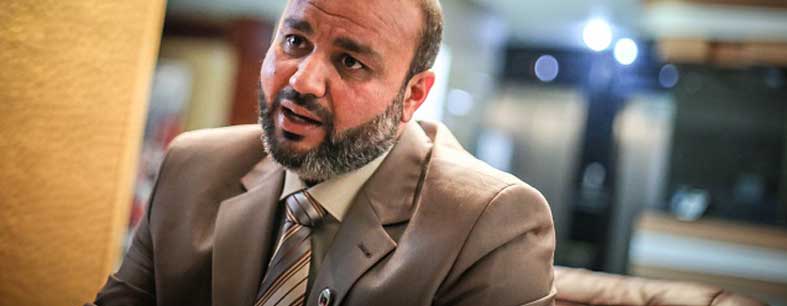Invited to participate in Libya’s post-revolution national dialogue efforts, Tahar Alkhadrawi is keen to get the conversation started and believes that using dialogue to resolve problems and disputes is a major tool to moving the country forward.
Alkhadrawi is one of 10 leaders selected to be a member of the Consulting Committee on National Dialogue as a result of training run by the LPRD leadership programme on Dialogue for former Thuwar Leaders.
“It really helps to talk and listen to others, to understand their point of view”, he says during an interview in Tripoli. “There isn’t much experience of dialogue in Libya, people know it as an expression, but the definition of it and how it can contribute is something we need to show and help people with.”
Yet success comes with experience and like many things, using dialogue as a mechanism to find solutions and progress needs skilled people with knowledge and experience in facilitating Dialogue. That’s why, along with 30 other former Thuwar leaders, Alkhadrawi, a graduate of both LPRD’s basic and advanced level training on Dialogue, non-violent Communication and civilian leadership, is going to Morocco through the LPRD Leadership project for further intensive training on international best practice in facilitating dialogue as a tool to rebuild post-conflict societies. Upon return they will use the new skills and techniques they have learned to facilitate national but also local dialogue processes in Libya.
“Every single problem that Libya is facing today can be solved by dialogue,” he says assertively. “If we want to solve our problems we need to spread the culture of dialogue and the first step of solving our problems is to get talking to each other,” he continues before going on to highlight some of the challenges which Libya faces three years after the revolution begun.
Accepting differences, respect for other opinions and openness to share ideas across tribal and political divide is crucial, but also new for Libya, “We are also looking at issues of federalism, refugees outside Libya, internally displaced peoples and recognition of ethnic groups and languages. The dialogue is not based on tribal or political dimensions or taking sides, but all Libyans together,” he adds.
“Everybody needs to be standing on common ground and once this happens we are going in the right direction, the response has been positive so far but facing the many challenges is the next step.”
Dialogue itself is not the same as mediation, the concept of solving problems by intervention of a mediator, such as a sheikh. Dialogue, and thus the role of Alkhadrawi and others like him is not to solve the problems between two differing sides, but to encourage people to talk out their issues and to create understanding of differences. “We are not going to solve the problems ourselves but create the environment in which people can solve their problems themselves. It’s about finding common ground, understanding. We need to break the ice first so the ship can then pass through on its journey. Our aim is to spread the culture of dialogue for the future. But our first task is to get Libyans under one roof, around one table and start talking, start discussing. This coming together is our first goal.”
Alkhadrawi points to a recent national dialogue in Yemen which achieved positive results and that the Committee is looking to learn and gain experience from this. Each country has different ways of solving problems using dialogue and he looks forward to gaining experience from those who have travelled the path already, such as people in Morocco. To understand someone else’s point of view, how they feel, what they think and believe is an integral part of this process.
Concluding, Alkhadrawi says the committee hopes that all Libyans agree on this way forward and the use of national dialogue. “As soon as we agree, we can achieve and contribute to building a strong country based on justice and one which will protect the rights of Libyans. My personal hope is that the Libyan people understand what the national dialogue means to us as Libyans. We hope that every single Libyan, the government, the different tribes and ethnic groups, and the many others, understand the value of dialogue and its importance.”

